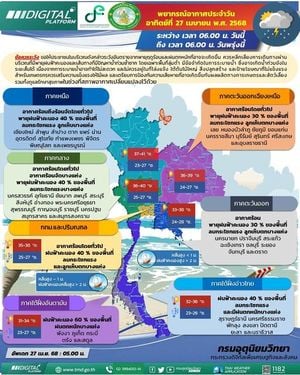Banking operations across India resumed normalcy today, March 24, 2025, following the postponement of a nationwide strike initially scheduled by the United Forum of Bank Unions (UFBU) for March 24 and 25. The decision to defer the strike was made after successful discussions among key stakeholders, showcasing a move towards addressing long-standing concerns related to labor conditions in the banking sector.
The UFBU, representing more than eight lakh bank employees from nine unions, had originally organized the strike to advocate for a five-day workweek, better recruitment strategies, and improved job security. However, following a productive consultation on Friday led by the Chief Labour Commissioner, a constructive dialogue was established, ultimately suspending the strike.
The All India Bank Employees Association (AIBEA), a prominent member of the UFBU, reported that a significant pacification meeting took place last week. This meeting included various representatives from the Indian Banks’ Association (IBA), the Department of Financial Services (DFS), and the Central Labour Commissioner (CLC). A DFS official joined via video call to discuss advancements towards addressing employee demands, particularly regarding the proposed five-day workweek.
As a result, the strike was pushed back, possibly by one to two months, as further discussions are planned. “Units are thus informed that our strike on 24th and 25th is postponed,” AIBEA stated. The next meeting between the stakeholders is scheduled for the third week of April, with direct assurances of continued dialogue from the involved parties.
On March 24, banks throughout the country are operating as usual, with all branches open for public service. Nevertheless, banking customers should be aware of upcoming holidays in the bank calendar, including closures on March 27 and 28 for Shab-I-Qadr and Jumat-ul-Vida in Jammu and Kashmir, and on March 31 for Ramzan-Id (Id-Ul-Fitr) across most of India. Only banks in Himachal Pradesh and Mizoram will maintain operations on March 31.
The postponement of the bank strike comes amid ongoing challenges faced by the banking workforce. Union representatives emphasize the need for adequate recruitment across all levels of the banking sector to relieve workload pressures on current employees. Furthermore, major concerns have been raised about new performance review guidelines introduced by the DFS, which unions argue could jeopardize job security.
In terms of specific demands, the UFBU has been advocating for a four-fold approach: securing a five-day workweek, immediate recruitment to address staff shortages, enhanced protections against workplace assaults, and improved workplace conditions. L Chandrasekhar, the General Secretary of the National Confederation of Bank Employees (NCBE), highlighted the unions’ objections to excessive DFS oversight. “Unions have also opposed the DFS’s alleged micromanagement, arguing that excessive intervention undermines the autonomy of bank boards,” he said.
Moreover, the unions call for the Gratuity Act to be amended, raising the gratuity ceiling to ₹25 lakh and ensuring tax exemptions on gratuity payouts. The UFBU’s actions underscore critical labor issues that resonate throughout the sector, as well as the pressing need to establish fair and balanced working conditions for employees.
Despite the successful negotiations that led to the postponement of the strike, the UFBU remains firm in its demands, indicating that talks must continue if satisfactory resolutions are to be achieved. The setback extends the timeline for substantial reforms in the banking sector, underscoring the crucial balance needed between operational demands and employee rights. The outcome of the next meetings in April will play a pivotal role in defining the future framework of employment conditions within the banks.
As transactions carry on today without disruption, stakeholders must keep a diligent eye on the evolving situation, particularly with significant reform discussions set to take place in just a few weeks. This coalition of unions insists that sufficient recourse must exist for the representation of bank employees and that their voices are adequately heard in decisions affecting their welfare and job security.
In summation, today’s peaceful operations underscore a meaningful moment in labor relations within the banking sector, as constructive dialogue presents a pathway toward mutual understanding and reform. The outcome of future negotiations could pave the way for lasting changes to improve the working environment for thousands of bank employees across India.







